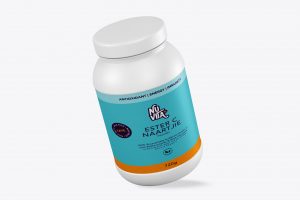When a doctor does not use the saliva hormone tests, in combination with other laboratory tests, then pieces together the results, more often than not, a mistaken diagnosis of adrenal fatigue is made.
Most laboratory tests are designed to look for “disease” states in the human body and adrenal fatigue is not a disease per se. In addition, there has never been a reliable urine or blood test that checks for, and can definitively diagnose, mild forms of hypoadrenia.
Adrenal fatigue is a group of related signs and symptoms (a syndrome) that results when the adrenal glands function below the necessary level. Most commonly associated with intense or prolonged stress, it can also arise during or after acute or chronic infections, especially respiratory infections such as influenza, bronchitis or pneumonia. As the name suggests, its chief symptom is fatigue unrelieved by sleep.
However, adrenal fatigue is not a readily identifiable entity like a sprained ankle. You may look and act relatively normal with adrenal fatigue and not have any obvious signs of physical illness, yet you live with a general sense of unwellness, tiredness or “grey” feelings. People experiencing adrenal fatigue often have to use coffee, colas, and other chemical stimulants to get going in the morning and to prop themselves up during the day. Remember and take note that these substances are creating a greater toxic load on your system than doing without them.
Interpretation Risk of Standard Laboratory Tests
Currently available laboratory tests can be useful in the diagnosis of adrenal fatigue, but they require special training in their interpretation. In fact, common tests done as part of a routine blood work-up can be very useful in the detection of signs of adrenal fatigue if physicians know what to look for. However, standard laboratory tests have certain limitations of which you should be aware.
Laboratory tests are usually based on a population of so-called “healthy” people. But the fundamental flaw in using these tests to diagnose adrenal fatigue is that these “healthy” people were never screened for mild to moderate hypoadrenia themselves. They were only screened for severe hypoadrenia, i.e. Addison’s disease. Thus the very standards to which laboratory tests compare patients are faulty from the outset because the population used to standardize the tests may include many people with some level of adrenal fatigue.
Another problem is that laboratory tests are defined and standardized according to statistical norms instead of physiologically optimal norms. That is, test scores are based on math rather than on signs and symptoms.
When the adrenal function of a population is tested, all the individual scores are taken and averaged together. The resulting group average, called the “mean,” is then used to calculate what is called a probability distribution. In this case the probability distribution is a statistical prediction of how often each score will occur when the adrenal function of a group of people is tested.
•

Addison’s Disease or Cushing’s Disease
In adrenal function the extreme low is Addison’s disease and the extreme high is Cushing’s disease. The other 95% represents an enormous variation in levels of adrenal function that is usually disregarded by lab computers and overlooked by doctors because the scores in this range do not fall into either of the two extreme, or “diseased” categories. By default, any scores falling within this wide range (95%) are considered “normal”

The end result of basing laboratory test scores on statistics rather than on signs and symptoms is that many people who have mild to moderately severe adrenal fatigue are never accurately diagnosed; they look “normal” on the tests. To make matters worse, standards can vary from lab to lab and therefore it is not always possible to even compare the results of one lab with another.
Additionally, standard laboratory tests also do not take into account the important factor of individual biochemical variation. One person’s test
results can vary significantly from another person’s, with both test results being normal (See illustration “Variation in ‘Normal’ Values Between
Individuals”).

This individual variation is not considered when scoring lab tests; you are either inside or outside the normal range. That means that your test score could even drop to ó its normal value and still fall within the normal range. When your hormones drop to half their normal value, there are definite biochemical changes going on in your body, yet this may never show up as unusual on standard lab tests interpreted in the usual way (See illustration “Individual Variation of Blood Cortisol Values.”)
This concern has been voiced in one of the most authoritative texts in medicine, Harrison’s Principles of Internal Medicine. “Most hormones have such a broad range of plasma levels within a normal population. As a consequence, the level of a hormone in an individual may be halved or doubled (and thus be abnormal for that person) but still be within the so-called normal range.” (Fauci, Anthony S. et al. (Ed). Harrison’s Principles of Internal Medicine 14th ed. Vol. 1. McGraw-Hill, NY, p1970, 1998.)
Ideally, doctors would have baseline scores for each patient that had been obtained when the patient was feeling well and functioning at a healthy level. This way, when the patient becomes symptomatic and is functioning at a lower level, the test could be repeated and the resulting scores compared to the original scores. The difference would be quantifiable and the doctor could make an accurate judgment as to whether or not adrenal function in this patient is below his or her own normal. Perhaps future physicians truly interested in their patients’ health will do this.
Additional Complications
Further complicating the problem of proper interpretation of laboratory data in adrenal fatigue is the fact that steroid hormones occur in more than one form in your body but most lab tests measure only one.
On most tests, laboratory error could account for more than the small difference between the 2 scores. It is important to realize that laboratory results are only indicators and that the actual scores, even when they fall within the normal range, may contain more useful information than “abnormal/normal.” I encourage you to obtain copies of all your lab tests so you can see for yourself the actual test values that indicate what is going on inside your body.
Test Your Status
Should you feel fatigued and do not have the answers you have been looking for, connect with us here and we can analyse your pathology results. If you haven’t had the correct tests conducted, we can provide you with a Lancet lab request form here.
Reference
Wilson JL. The 21st Century Stress Syndrome. Laboratory Tests for Adrenal Fatigue p87-91.








